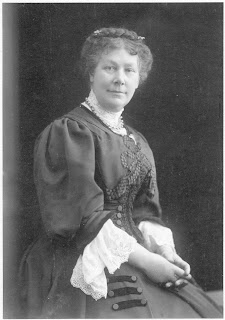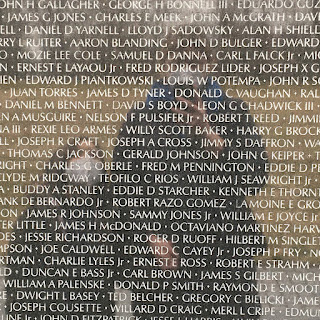Reflections on the challenges of writing women’s lives, 25 June 2022
On 25 June 2022, the West of England and South Wales Women's History Network held a study morning on the theme of writing women's lives. Karen Hunt, Julia Neville and Lucienne Boyce gave short presentations, followed by discussion. Jane Howells describes the event and some of the questions raised...
Karen Hunt: Dora Montefiore, socialist, suffragist, writer and poet
Karen Hunt introduced us to Dora Montefiore (1851-1933), about whom she has been researching and writing for many years, without producing a ‘book’. Much of the work has been responding to conference themes which direct, distort and distract; this inevitably results in a partial view of a life. Striking a balance between narrative and analysis is always a challenge.
Dora Montefiore was a socialist, then communist, and active suffrage campaigner, writer and poet. She lived at times in Australia and South Africa, where there are sources for her life, and she travelled widely. There is no surviving personal archive, so the sources are varied, particularly from the many groups and individuals with which she was involved.
Karen offered an extensive list of possible ways to approach writing about Dora’s life: including her many organisational affiliations; different aspects of her politics; how did she acquire and develop the skills for a political life; how did she organise her private life to enable her public life; how should we assess her with hindsight; and much more.
Julia Neville: Juanita Phillips, mayor and county councillor in Devon
Julia Neville has published Viva Juanita: Juanita Phillips, Champion for Change in East Devon between the wars. This came about because Honiton Senior Voice wanted to celebrate her life, and asked Julia to research the background, which became a commission for the book. The local community was actively involved with the celebrations, and were the readers of the book.
Juanita Maxwell Phillips (1880–1965) was the first woman mayor of Honiton, the first woman county councillor in Devon and held many roles in local government in the county. She was a strong supporter and campaigner for women’s rights. In addition to local newspapers, a major source on her life is a series of scrapbooks which cover the middle period of her most active years. Even so there are unanswered questions – such as what to do with the bits of information that don’t fit with the whole -and some intriguing inconsistencies such as a reference on Juanita’s blue plaque to her having served prison sentences for which there is no other evidence. It is interesting that she was careful not to involve her husband in her public political life, and also careful not to reveal her personal party politics. There would be much work to do to create a full biography.
Lucienne Boyce: Millicent Browne, suffrage campaigner, Garden City pioneer, and pacifist
Lucienne Boyce is working on a biography of Millicent Browne (1881-1975), a teacher, suffrage campaigner, pacifist, and Garden City pioneer.

First page of a letter to Millicent Browne, addressed to her at Bow Street Magistrates' Court
Millicent wrote an unpublished autobiography, The World’s Festival, which was the starting point for the biography, but which also raises a number of challenging issues for a biographer. It only goes up to the 1920s, was written 50 years after the events described, a chapter is missing, all the photographs have been lost, and there are two extant versions. The memories described don’t provide context, some events are in the wrong order, other people are omitted; it is of course how Millicent chose to remember the past. Factual details can be checked against other sources, of which there are plenty. However the relationship between autobiography and biography reaches deeper into the issues surrounding writing about women’s lives. Lucienne proposed a number of questions, including ‘how do I handle knowing more about Millicent Browne’s life than she did’?
The issues raised - and 'french knitting'
The three papers were followed by discussion and contributions
from other attendees that took us in a variety of directions, raising issues
that will stay with us. Some had experience of using oral testimony with its advantages
and disadvantages. Others had limited archival material indirectly connected to
their subject. Questions were raised such as how reliable are the notes and
interpretations we made many years ago? In what ways does the potential audience
for a biography influence the biographer? When should we stop looking for more
information?
Karen’s metaphor of ‘french knitting’ – an interweaving of different threads so a multi-coloured whole appears – provided a powerful image. Whose life is not made up of many separate elements, none of which operates on its own?
We look forward to reading more about these three subjects as their biographers make progress.
Picture Credits:-
Dora Montefiore in 1905,courtesy of Graham Broad.
Letter to Millicent Browne from Lady Constance Lytton, 6 July 1909: Women's Library on Flickr, No Known Copyright Restrictions






Comments
Post a Comment